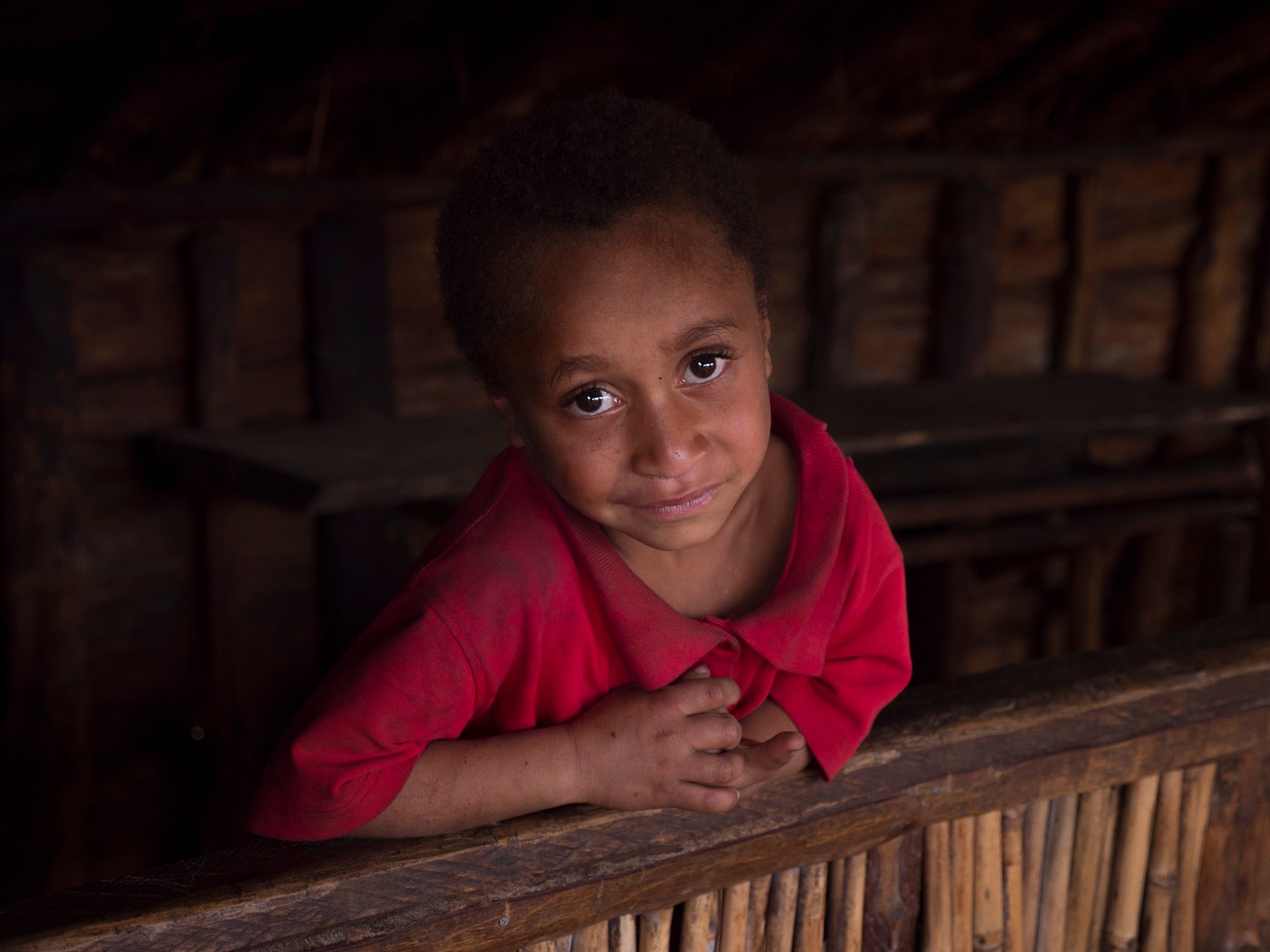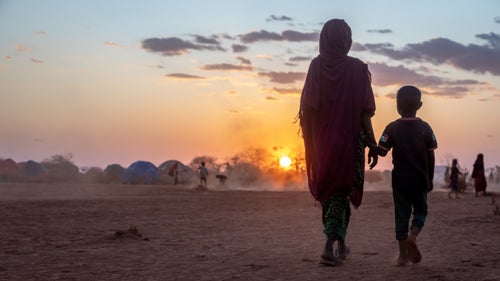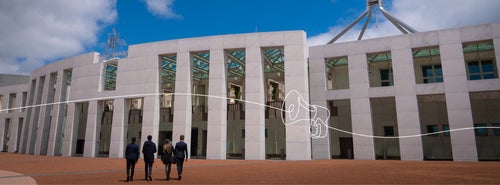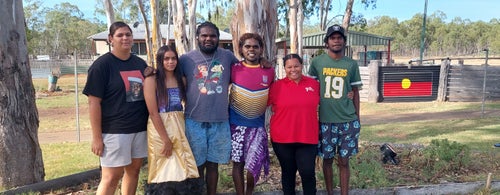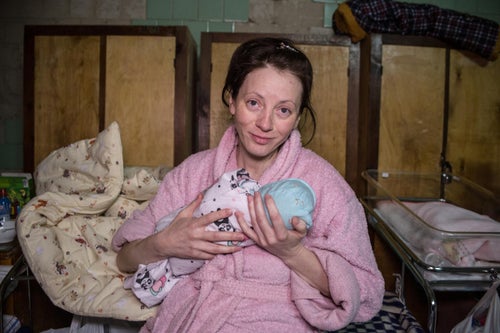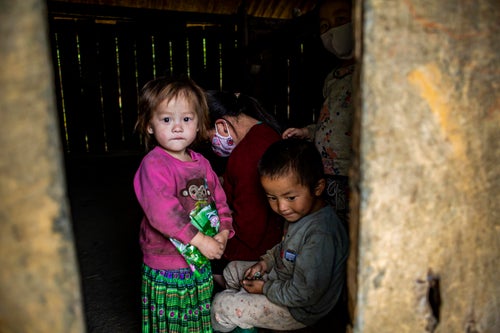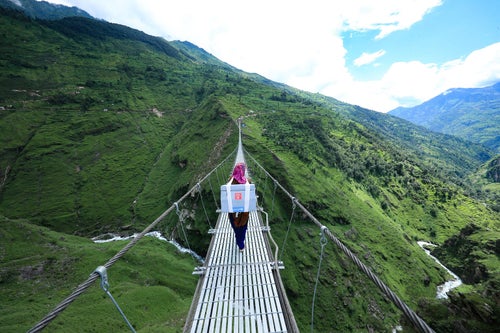A number of devastating earthquakes tore through Papua New Guinea earlier this year leaving a quarter of a million children in urgent need of food, clean water and shelter. Only several months later, an emergency was declared following an outbreak of the polio virus. UNICEF's David McLoughlin and his team are tasked with the overwhelming job of finding and helping thousands of children and their families who are suffering because of these emergencies.
There are very few places in the world that are as remote and isolated as Papua New Guinea's highlands. So much so, that after a 7.5 magnitude earthquake struck in the Southern Highlands province, David McLoughlin had to be flown in by helicopter. He was dropped into a small village atop a mountain with a population of about 2,000 people - half of which were children - to assess the damage.
"There were no roads in and no roads out," the UNICEF Representative for PNG says.
"Unfortunately the village had lost their crop of sago and banana. The people were left to survive on just water and eating grass roots."
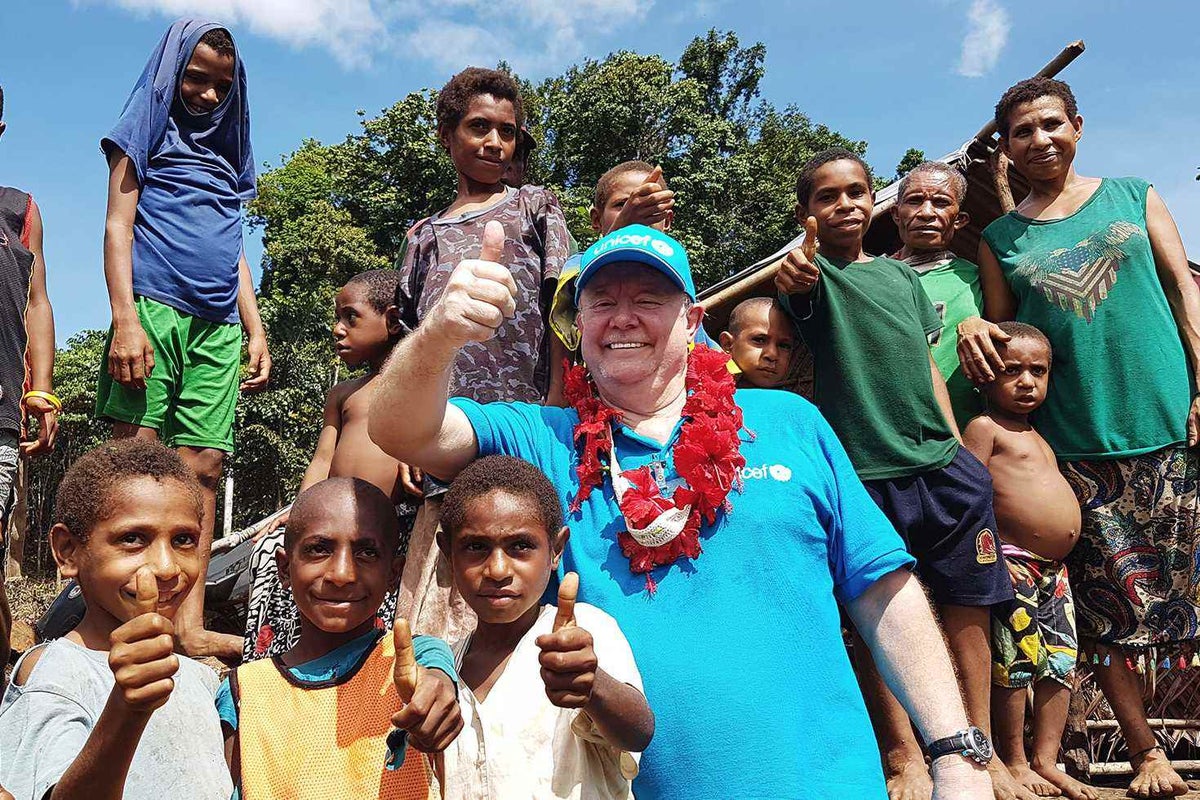
The humanitarian situation in PNG - one of the poorest countries in the region and even the world - has deteriorated and remains grim. The series of major earthquakes which started in February caused widespread destruction across the remote areas of Hela, Southern Highlands, Western and Enga Provinces.
A massive 544,000 people were affected - more than a quarter of a million of them children. Many families lost their homes, source of water, health facilities, schools, and the gardens they relied on for food. Months later, children are still suffering significant trauma and stress and are in need of vital services.
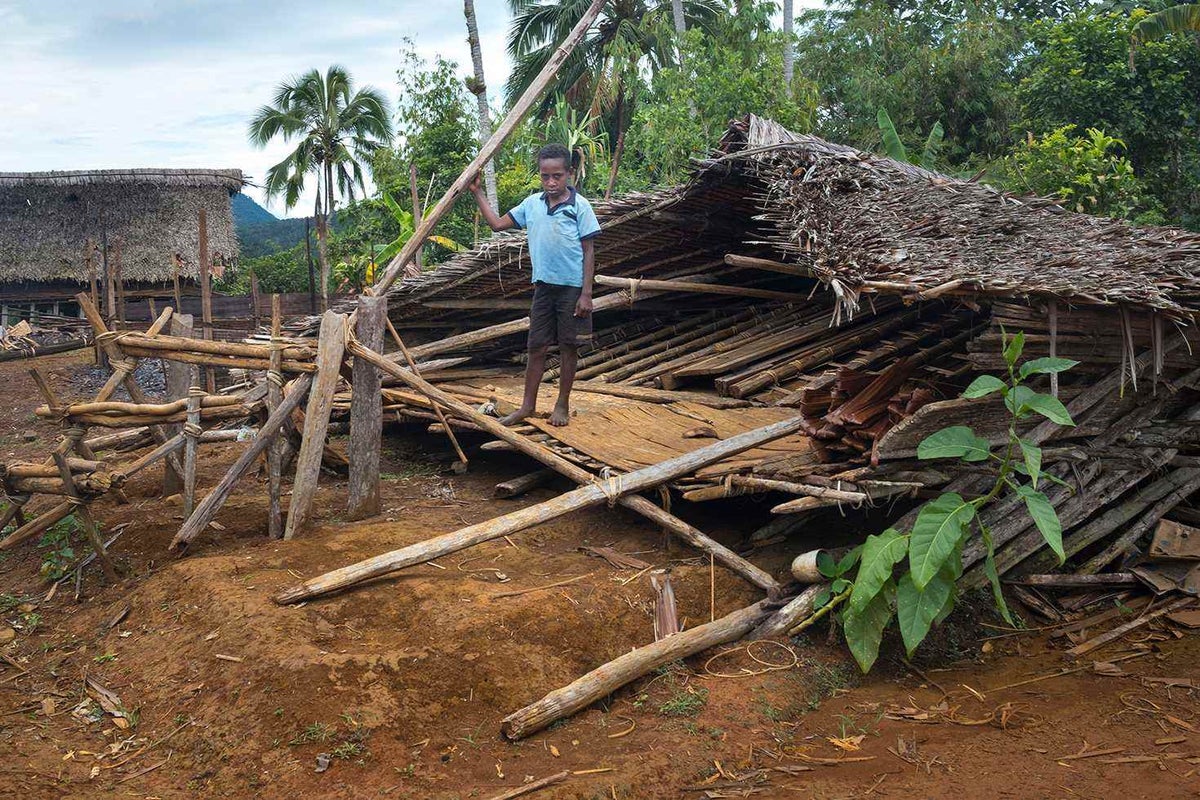
David has worked in some of the most difficult parts of the world but he says PNG is right up there as one of the most challenging environments he's operated in yet, with thousands of tribal communities hidden within thick jungle and rugged, mountainous terrain.
15 per cent of people live in the capital, Port Moresby, while the rest of the population is spread out over rural areas - many of which are extremely hard to access.
"There is a lack of understanding about where people are, what they need and how to get services to them," says David. "That is the biggest challenge in this country."
"Port Moresby is a little bit cut off from the reality of what is happening out in the rest of the country."
On top of the earthquakes, PNG now faces yet another setback. In June, the government declared a public emergency due to an outbreak of polio - a virus which is sometimes fatal and can cause permanent disability - for the first time in 18 years.
Polio has all but vanished around the world and exists only in Afghanistan, Pakistan, Nigeria and now PNG. To control the outbreak, UNICEF has started to bring in 4.7 million oral polio vaccines and has so far immunised 987,000 children.
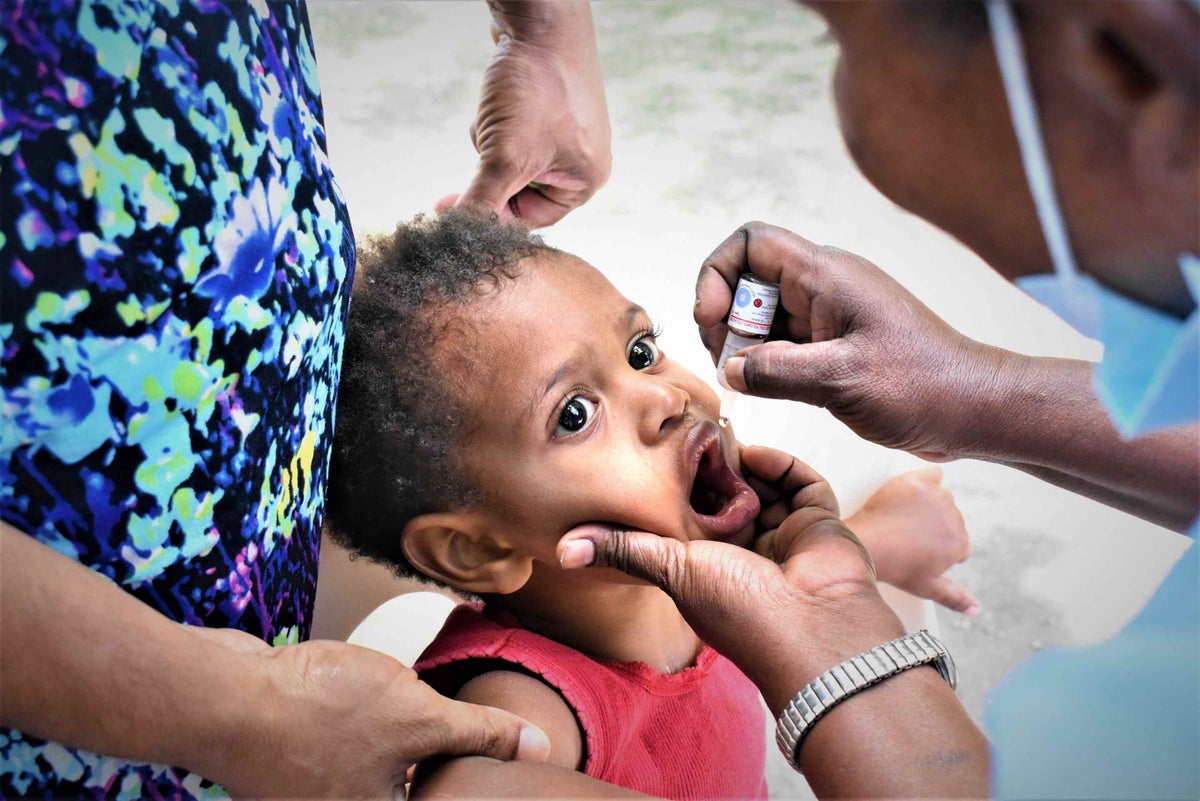
But overcoming challenges isn't a new feat for David. Back in the early 2000s when he was based in Afghanistan the Aussie aid worker was forced to negotiate with the Taliban and Al Qaeda to truck in emergency equipment needed to save the lives of thousands of women and children in remote and dangerous parts of the country.
"We had to enter into very significant negotiations without putting lives at risk and it took quite a few months to do that," he recalls. "At the end of the day we were able to negotiate quite a large number of trucks worth of medical supplies to get in to save the lives of children, pregnant women and newborns."
David says during this time he had become so conditioned to the chaotic way of life in Afghanistan during the five years he was based there, that the "real world" seemed abnormal. He recalls a creeping sense of insecurity when he was more than 10,000 metres in the sky on a commercial plane back home to his family in Australia. He no longer had his security system surrounding him. No bullet proof vests and helmets. No obligatory security clearance of passengers around him. And he felt vulnerable. He recalls that it was this moment after nearly ten years in Iraq and Afghanistan that it was time for him to move out.
"It can get to a situation that what is normal is the way of life in Iraq and Afghanistan and places like that, and what becomes abnormal is the outside world."
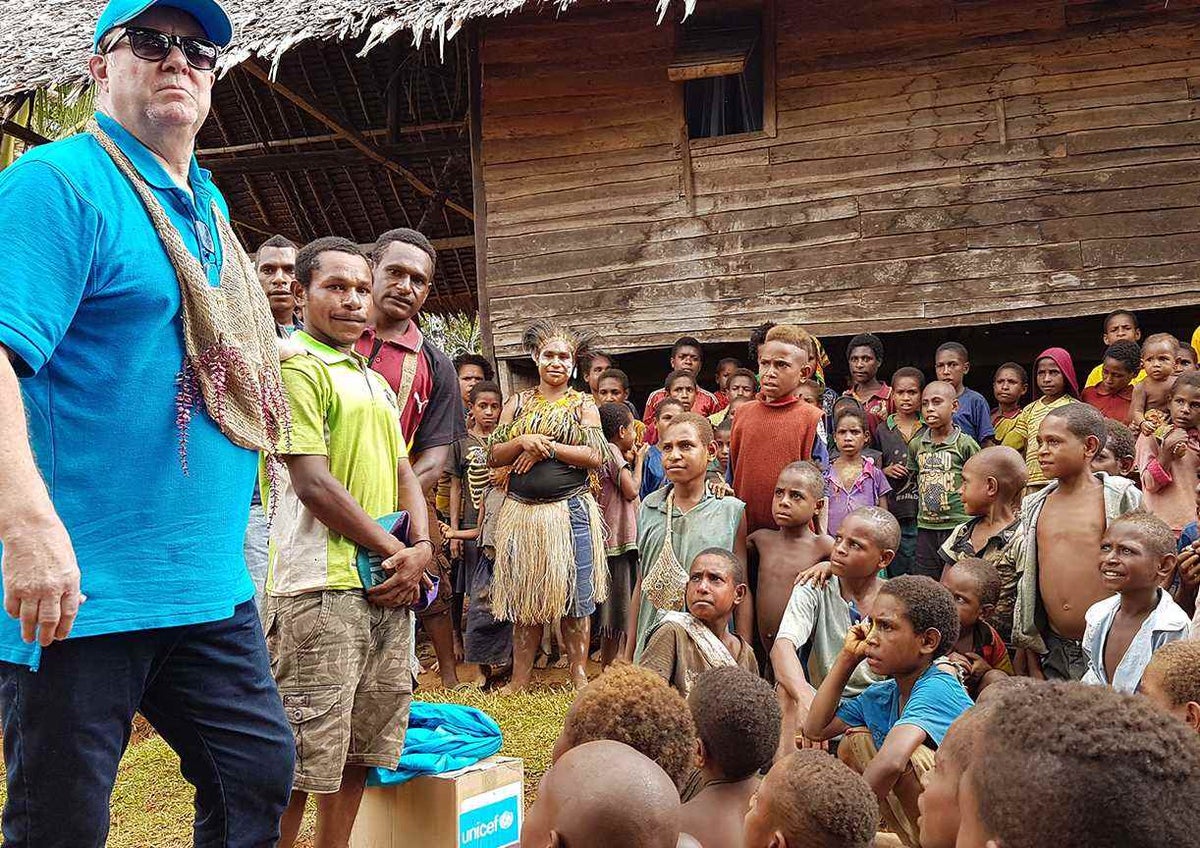
In roles for both UNICEF and other UN agencies, David has also helped rebuild northern Iraq's education system from the ground up. He has assisted in establishing support centres for hundreds of thousands of refugees travelling through Europe to provide them with much needed medical attention and protection for children who had been separated from their families. He has helped reach the incredible milestone of getting four million girls attending school in Afghanistan - where it was culturally unacceptable for females to be educated. And, also engaged in the Chinese Sichuan earthquake recovery which killed 69,000 people. This was all before moving into his current role in PNG.
"People often thought I was challenging things that couldn't be done," the humanitarian says. But his list of accomplishments proves otherwise, and now David is determined to bring the same opportunities to children in PNG.
"If everyone spent 10 per cent of their working life helping others around the world, sharing the knowledge and skills to make their lives better, then I think our world would be a different place."
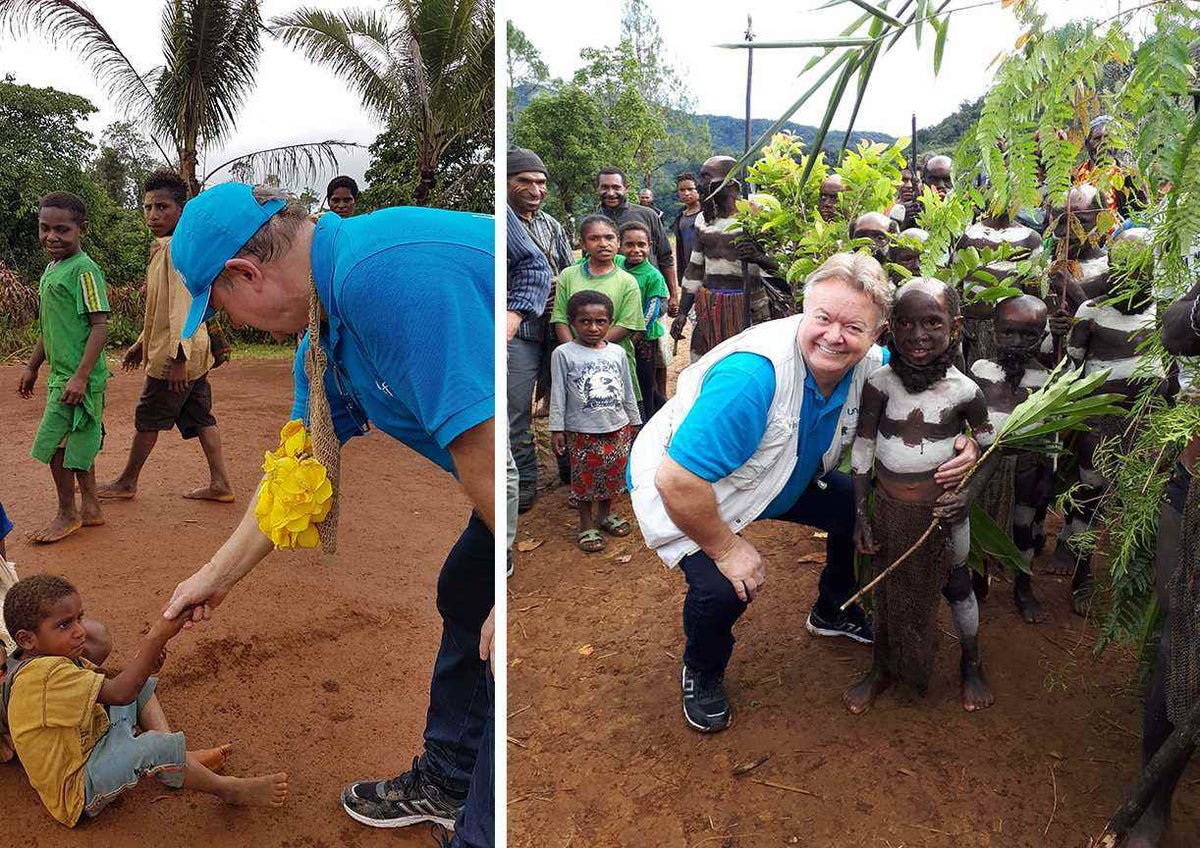
Inspired? Even from here in Australia, you can do your bit!
UNICEF humanitarians like David do incredible work out in the field but you too can help all around the world by signing up to make a monthly gift & joining our special group of Global Parents.
UNICEF can reach children no one else can. We can provide safe places for children to learn and play, deliver clean water and life-changing supplies, bring a child back from severe malnutrition and make sure every child smiles. But we can’t do it alone. Help UNICEF deliver these things and more to every child.
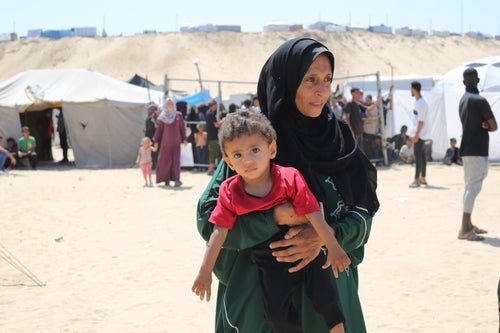
Become a Regular Donor
For every child in crisis.
Related articles
Stay up-to-date on UNICEF's work in Australia and around the world



